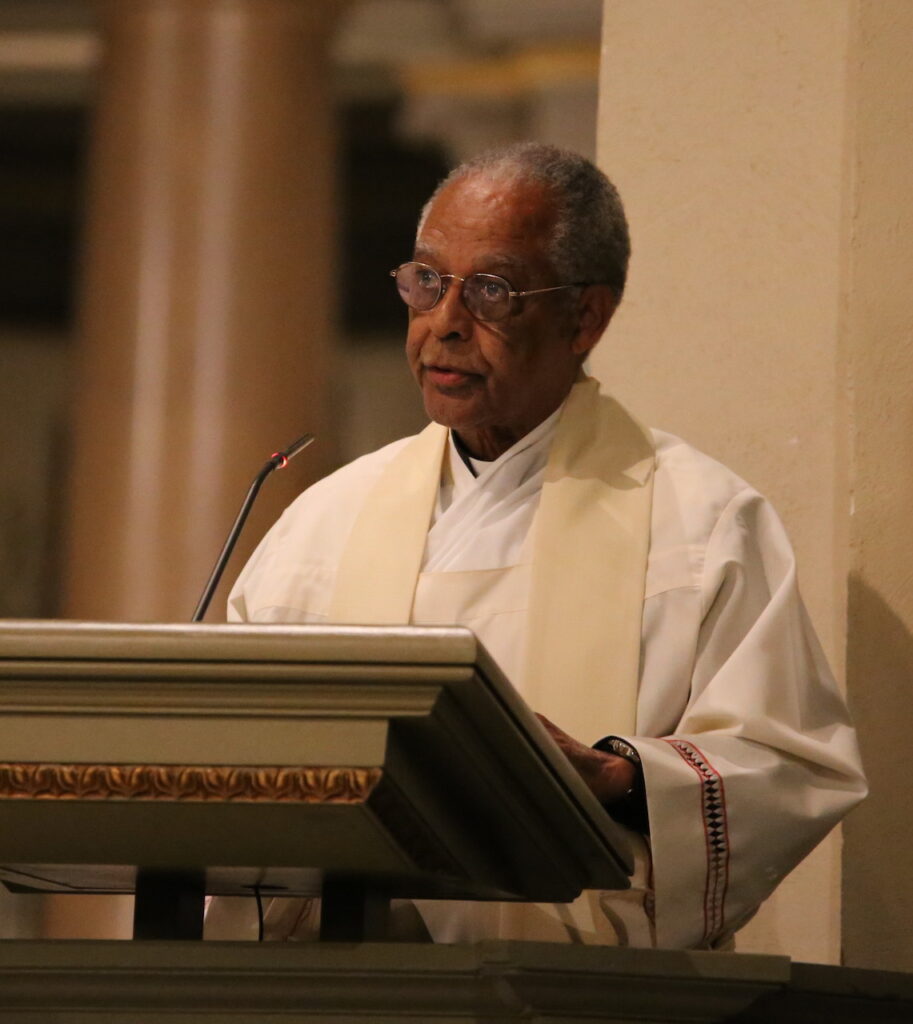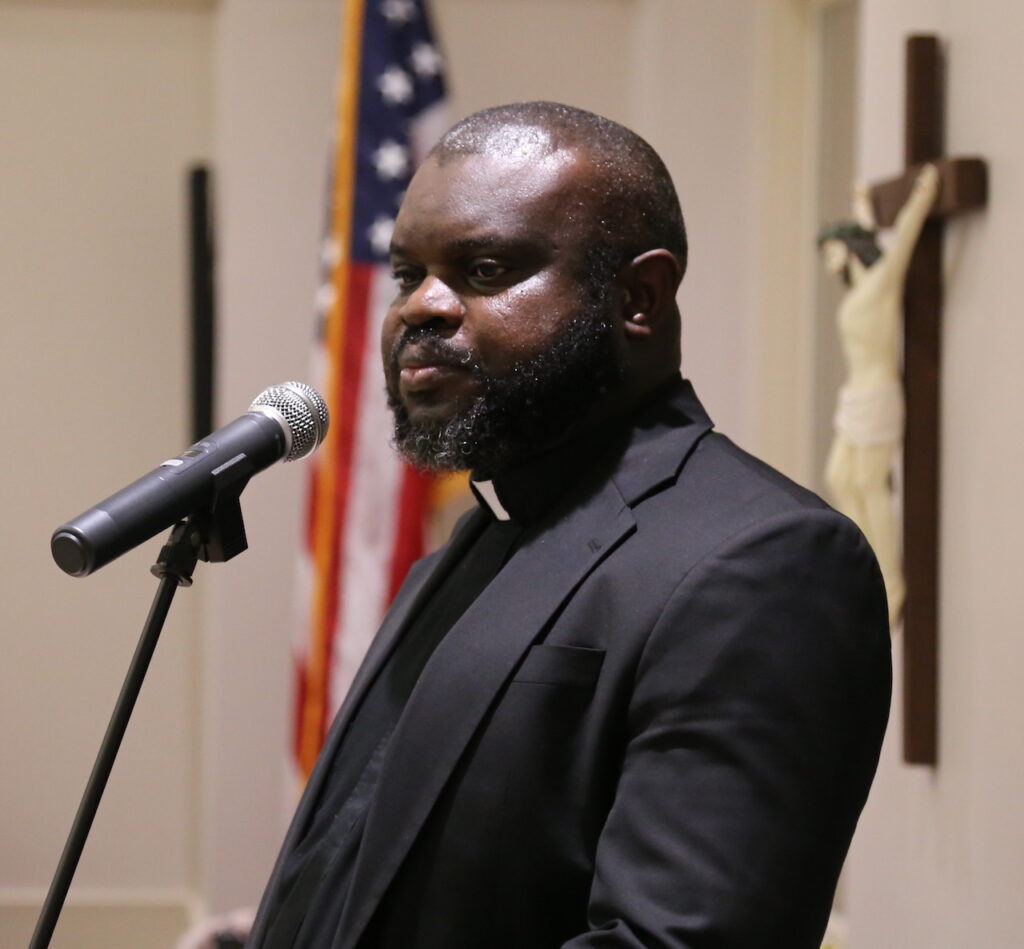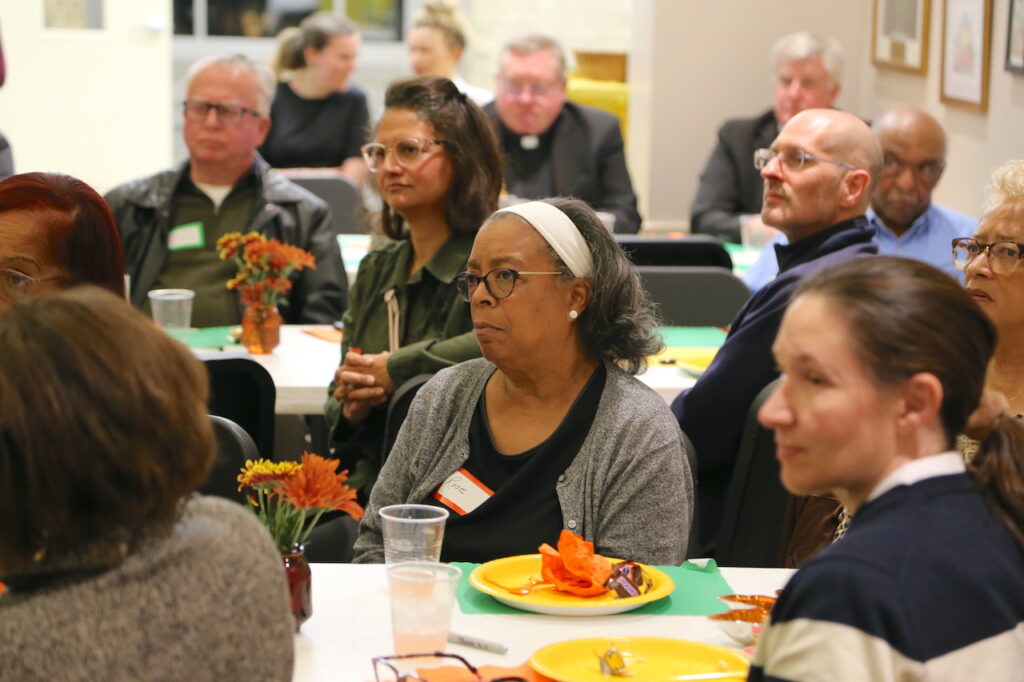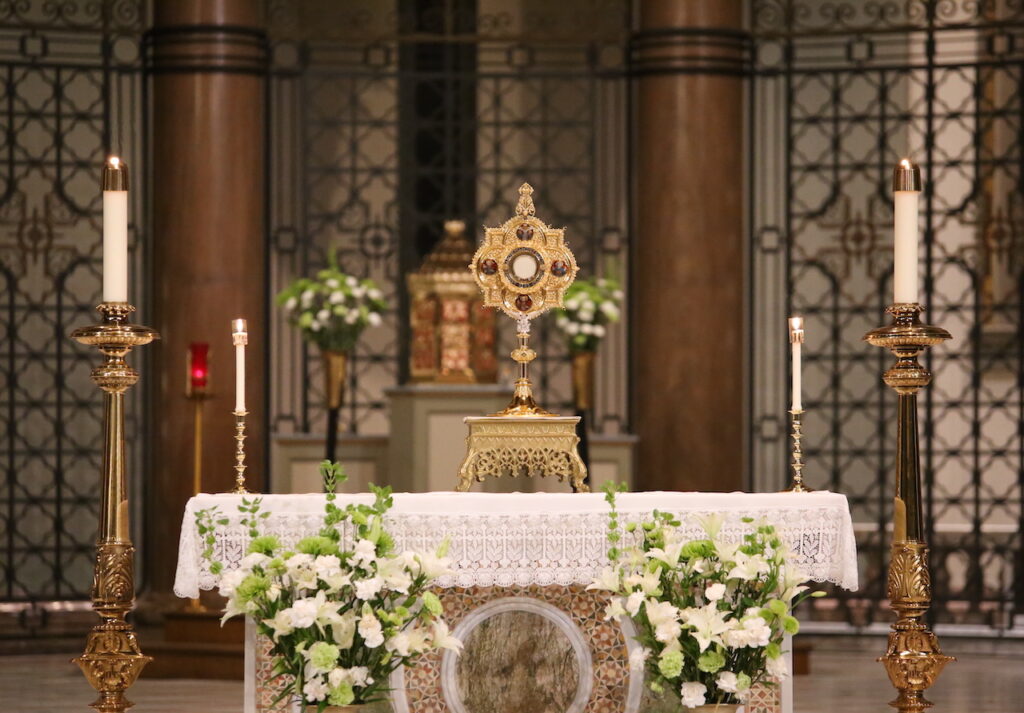Each Wednesday evening, the Cathedral of the Sacred Heart, Richmond, has a Holy Hour. In the presence of the Blessed Sacrament, visitors can pray, listen to readings and go to confession. On Wednesday, Nov. 8, this hour of adoration had a special designation: as the diocesan Office for Black Catholics begins its Year of Healing and Renewal, the Holy Hour was held in honor of St. Peter Claver, a Jesuit missionary to African slaves in the Americas.
Msgr. Walter Barrett, the former director of the office and retired priest, read a letter from St. Peter Claver during the Holy Hour. Written May 30, 1627 in Cartageña, Colombia, the passage described the Jesuit’s service to disembarked slaves, who were naked and lying amongst broken bricks by the harbor. He brought them fresh fruit and news of the Gospel.

“There were two [Black men] nearer to death than life, already cold, whose pulse could scarcely be detected,” wrote the saint. “We pulled some live coals together and placed them in the middle near the dying men. Into this fire we tossed aromatics. … Using our cloaks, for they had nothing of this sort … we provided for them a smoke treatment, by which they seemed to recover their warmth and the breath of life. … Then we sat, or rather knelt, beside them and bathed their faces and bodies with wine.”
In addition to caring for the physical health of these men, St. Peter Claver taught them about the sacraments and the sacrifice of Christ on the cross. By the end of his life, it was said that he had brought 300,000 souls to Christ and the Church, and he called himself “the slave of slaves forever.”
As Msgr. Barrett noted, over 1.5 million Africans were brought to Latin America between 1595 and 1773, all under the rule of the Spanish and Portuguese, two proudly Catholic empires. In 1985, Pope St. John Paul II formally apologized for the role of Christians in the transatlantic slave trade.
“The Church is holy because Christ’s presence is with us; he is the head of the body. The Church is sinful because of its human membership – all of us,” said Msgr. Barrett. “It will remain this way until the final judgment.”
Challenges continue today
Though chattel slavery is no longer legal in the Americas, Father Tochi Iwuji, director of the Office for Black Catholics and pastor of Holy Rosary, Richmond, says that racist attitudes still negatively impact society today. A Nigerian native, he spoke in the parish hall following the Holy Hour about his own experience in the United States, part of the Deacon Charles Williams Speaker Series for Racial Healing.
“When I was living in Baltimore as a student, I was in Roland Park one day and I saw a kid, a white boy, vomiting. I stopped – I didn’t care whether anyone would think anything or not, because this kid was vomiting, trying to walk home. I said, ‘Do you need help? Are you okay?’ And he said, ‘I’m not okay,’” Father Tochi recalled.

Father Tochi then gave the boy some water, took him home and gave him his phone to call his mom. “When the boy said, ‘A Black man saw me and brought me home,’ you could hear fear and panic in the mom’s voice. She said, ‘Don’t go with him, don’t leave with him, stay there.’”
“Two days later, I sent a message and said, ‘I hope your son is doing better. I’m praying for him.’ She responded, ‘Thank you. I wish we were not in a society where we should be afraid of such acts.’ And I said, ‘Despite what society has done, we must not be afraid to be kind,’” Father Tochi continued.
“Look at that little boy. He needed help. But because of the danger of society, and the fear we project, we are teaching our kids to be afraid of people who don’t look like them,” he said.
Father Tochi said that he also experienced some challenging moments during his vocation journey – times where he felt he wasn’t wanted. But during his first assignment at St. Bridget, Richmond, he found two friends to encourage him – Msgr. William Carr and Msgr. Francis Muench – and a congregation ready to embrace him.
“Even when certain voices say you are not needed, look at the people, and you will see a million reasons why you are needed,” he said. “The people [of the diocese] became my support system.”

Praying for healing
The purpose of the Deacon Charles Williams Speaker Series is to provide education about racial injustice and promote racial reconciliation. Father Tochi said that those goals can only be reached if people are willing to have tough conversations and embrace diversity.
“Diversity is so beautiful. It might be challenging, but in that challenge is where the beauty comes,” he said.
“If you’re Catholic, the world ‘Catholic’ means ‘universal,’” he added. “If I go to Nigeria, I celebrate Mass the way I do it here. It’s universal. So, if you only know people that look and think like you, you are missing out on being universal. You are missing out in participating in the mission that Christ has called us to.”
Meeting racist attitudes with equanimity is something that Father Tochi has worked on for years. “In those moments of being upset, I repeat, ‘Jesus, I trust in you,’” he said. “I don’t give people the privilege of controlling how I react, and people’s attitude towards me does not inform my attitude towards them.”
“It takes a while to get to that point,” he said. “Don’t force it – it’s a journey and a process. But it is possible.”
In many ways, this thought echoed a sentiment shared by Msgr. Barrett at the Holy Hour. Quoting Venerable Archbishop Fulton J. Sheen, he said, “‘A saint is a sinner who keeps trying to become a saint. A sinner is a sinner who stops trying.’”
“We are here tonight because we all want to be saints, but we can’t do it by ourselves,” added Msgr. Barrett. “St. Peter Claver, pray for us.”

